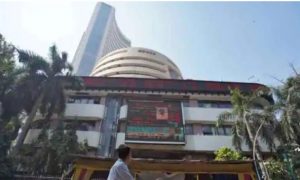The Employees’ Provident Fund Organsation (EPFO) has issued a circular regarding the Supreme Court’s November 4 order, in which the top court declared as ‘legal and valid’ the provisions contained under the Employees’ Pension Amendment (Scheme), 2014, and also read down certain provisions of the scheme.
In the circular (dated December 29), EPFO has laid down the terms and conditions for a subscriber to get higher pension, and how those eligible can apply for the same. The circular also stated that the apex court’s instructions will be implemented within a period of 8 weeks.
Read More: Interest Rate of Public Provident Fund May Increase Before Year End
Who all are eligible for higher pension?
According to the release, these subscribers are eligible to receive higher pension:
(1.) Members, who, as employees, contributed on salary exceeding the-then wage ceiling of ₹5,000 or ₹6,000.
(2.) Members who exercised the joint option under the Employees’ Pension Scheme (EPS) of the pre-amendment scheme, while being members of EPS-95.
3.) Those whose exercise of such an option was rejected by EPFO
(4.) Employees who retired before September 1, 2014, upon exercising this option under paragraph (3) of the 1995 scheme.
Read More: Provident Fund Alert: Interest Rate Of Public Provident Fund Likely To Increase Before Dec 31
How to apply for higher pension?
Those eligible should visit the regional EPFO office with proper documents and submit their application in this regard. To do so:
(1.) The commissioner will specify the form and manner in which the request is to be made.
(2.) The application form should mention the disclaimer, as instructed in the government notification.
(3.) For readjustment from provident fund (PF) to pension fund, and, if any, redeposit to the fund, the pensioner will have to give his/her consent in the form.
(4.) The trustee will submit an undertaking in case funds are being transferred from the exempted provident fund to pension fund.
(5.) For depositing such funds, the method being used will follow through subsequent circulars.





































